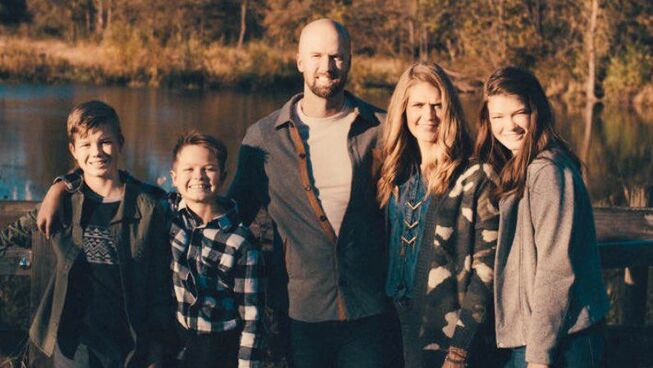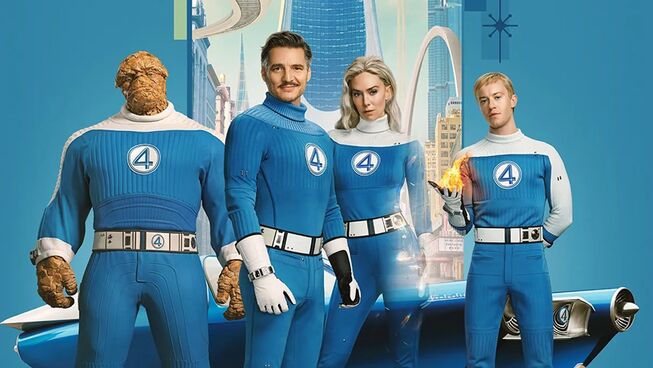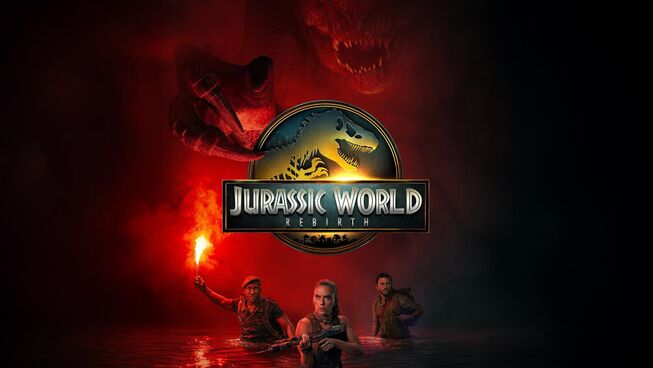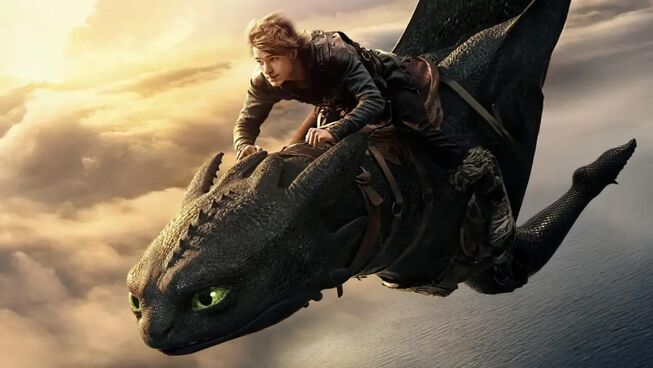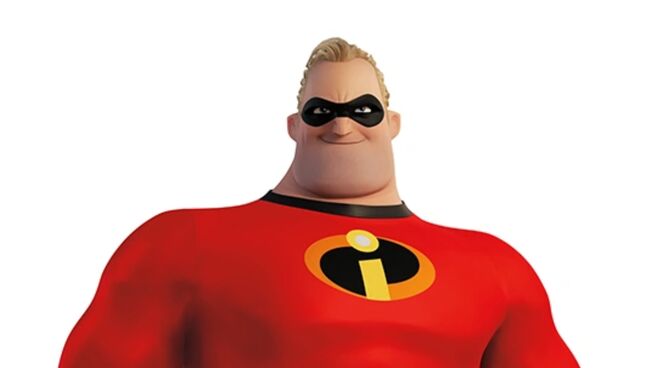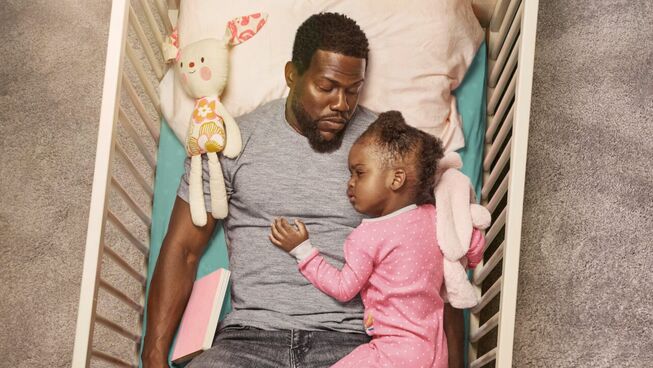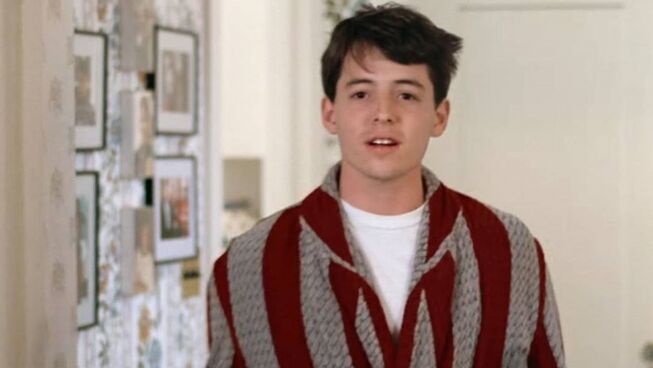Field of Dreams
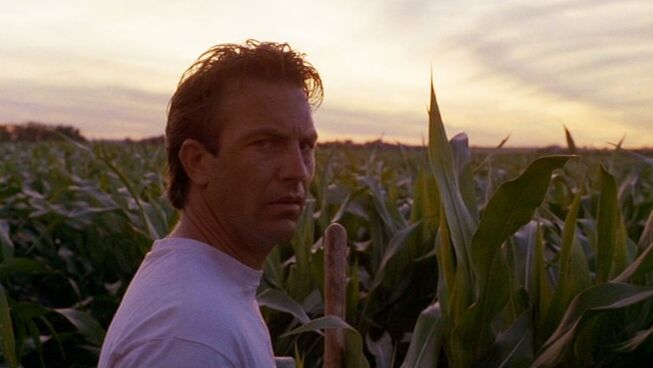
“Is this heaven? No, it’s Iowa!”
Based on a book by W.P. Kinsella called Shoeless Joe, Field of Dreams stars Kevin Costner as an Iowa farmer and family man named Ray Kinsella. One night while walking the rows of his cornfield Ray hears a mysterious voice whisper, “If you build it, he will come.” Ray sees a vision of a baseball diamond off in the distance and is certain that if he plows under his crop and builds a baseball field, the disgraced baseball player, Shoeless Joe Jackson, will come to play. Haunted by the strained relationship with his deceased father, John Kinsella (Dwier Brown), and the regret of having never done anything truly “illogical”, Ray convinces his wife, Annie (Amy Madigan), to go along. As Ray builds the field, he acknowledges the special bond he and his father shared around the game of baseball. Ray tells his daughter Karen (Gaby Hoffman) about her grandfather’s favourite player, Shoeless Joe Jackson, who, along with seven other players, was permanently banned from baseball for sabotaging the 1919 World Series. Ray is taunted by family and friends for what they consider to be an act of lunacy until one day, as promised, the ghosts of great baseball players from long ago emerge from the corn.
Soon after the arrival of Shoeless Joe (Ray Liotta) and the other members of the notorious Black Sox team, the voice tells Ray to, “Ease his pain.” Ray’s next task is to drive to Boston, find a reclusive activist writer, Terrence Mann (James Earl Jones), and convince him to go to a Boston Red Sox game. Mann once gave an interview in which he talked about his love for baseball and how he always dreamed of playing at Ebbets Field, and how sad he was when they tore it down. During the game, Ray hears the voice say, “Go the distance.” The scoreboard displays an unusual statistic for a player named Archibald “Moonlight” Graham who played for the New York Giants in 1922 and received credit for playing in 1 game and 0 at bats. Going the distance requires them to drive from Boston to Graham’s hometown in Minnesota and offer him a chance to play baseball in Iowa. Unfortunately, “Doc” Graham (Burt Lancaster) passed away 16 years earlier, but a few of the town’s old-timers still remember him fondly. “Moonlight” Graham gave up on his dream to play baseball and instead went to medical school to become a small town doctor. Unsure of all this, the two men head back to Iowa. Along the way Ray picks up a young hitchhiker named Archie Graham. As luck would have it, Archie is a baseball player looking for a team to join.
Field of Dreams is a Frank Capraesque fairytale about the possibility of second chances and the healing relief of forgiveness. The magic of an Iowa cornfield allows people to take another stab at a dream, restore a broken relationship, or even go back to fix a past regret. The field addresses a message of mystery and even heartache in the what if? of one’s calling. Doc Graham summed up his own feeling of regret when he said, “We don’t recognise the most significant moments of our lives while they’re happening. Back then I thought there’d be other days. I didn’t realise that was the only day.” The story is also a reminder this Father’s Day (US) to go have that talk with Dad, the one you wish you’d had, but never got around to. It is no wonder why Field of Dreams takes place on a baseball field. Someone said,
“Baseball is rhythm without time. The lack of a clock renders the events immortal instead of static. There’s no running out the clock. A baseball game lasts as it needs to, just like a lifetime. Baseball is the way our hearts wish time worked.”
One scene that depicts this well is when Karen falls off the back of a wooden bleacher while eating a hotdog. In the ensuing panic, young Archie Graham calmly steps out of the baseball diamond and into his much older self. The now elderly “Doc” Graham (Burt Lancaster) examines little Karen and says she is choking to death. He strikes Karen on the back to open her airway, saving the young girl’s life. Ray is hit with the realisation that Graham cannot return to the game. He cries out, “Oh my god, you can’t go back. You can’t go back.” The moment is filled with profound sadness. With a medical bag in hand, the aged doctor walks across the diamond towards a sea of corn that marks the backfield line. As Doc Graham walks off the field for the last time, Shoeless Joe Jackson shouts, “Hey Rookie! You were good.” In other words, “You had what it takes and that’s enough.” Despite living a full and meaningful life as a doctor, “Moonlight” Graham was left wondering up to this moment if he was good enough for his dream.

Reel Marriage
Lights, Camera... Movies and Marriage!
Marriage is one of life’s greatest blessings, yet it faces countless challenges in today’s world. How can we strengthen our commitment and help others see its value? The Bible offers wisdom, but what if movies could serve as a bridge to deeper conversations about love, faith, and commitment?
Reel Marriage explores how film and Scripture can illuminate the beauty of marriage, providing fresh insights into God’s design for love and relationships. From classic romances to modern dramas, movies capture couples' struggles and triumphs, mirroring biblical truths in powerful ways.
Faith and film unite. Are you ready to see marriage in a whole new light?
If you order your copy today you will also receive a complementary handbook that is only available with the purchase of the book (Print or ebook)
The magic of this baseball field allowed Doc Graham to “go back” and have a turn at bat. Now it's over. Graham’s decision to leave the field in exchange for his greater calling of being a doctor renders him unable to return to the game. It is a reminder of the cold reality of decisions and its consequences. It is also a reminder of the difference between dream and purpose. Young Archie’s chance at bat in the Majors appeared for a moment and then disappeared forever. To get so close without taking a swing at a single pitch had to be maddening. Ray saw this as a tragedy, but Doc Graham saw it differently. “If I’d only gotten to be a doctor for five minutes, now that would have been a tragedy.”
By the film’s climax, we know the voice’s messages were intended for Ray. Building the baseball field reunited Ray with his father. The pain Ray was supposed to ease was not “Moonlight” Graham’s or Terrence Mann’s, it was his own. Going the distance was a life lesson Ray had to learn by taking the journey himself. Ray told Annie his reason for building the field was fear of becoming his father. He says, “I never forgave my father for getting old. By the time he was as old as I am now, he was ancient. He must have had dreams but never did anything about them.” Later Ray reveals to Mann that his father’s one dream was to play in the majors and when that didn’t work out, he forced baseball on his son instead. By the time Ray was fourteen he refused to even play catch with his dad anymore. This resentment came to a head when Ray turned eighteen and finally told him, “I can never respect someone whose hero was a criminal.” The two never spoke again.
The final scene in Field of Dreams has brought many grown men to tears. This may be due to the universal complexity of the father-son relationship. It is almost as if a son feels the need to run over his dad so he can become a man. This delicate relationship can be destroyed by a single catastrophic event or crumble over time through a web of tiny fractures caused by the tyranny of quiet resentment. Ultimately, a young man stands behind home plate and removes his catcher’s mask. Ray can’t believe the man is his father and says, “I only saw him years later when he was worn down by life. He’s got his whole life in front of him and I’m not even a glint in his eye. What do I say to him?” At first, Ray hesitates, and another moment is nearly lost. John turns towards the setting sun and almost walks away when Ray finally says, “Hey, Dad, you wanna have a catch.” To which John responds with, “I’d like that.” We are told that heaven is a place where dreams come true. In this story Ray longs for reconciliation with his father and his dream is fulfilled on a baseball field in Iowa.
